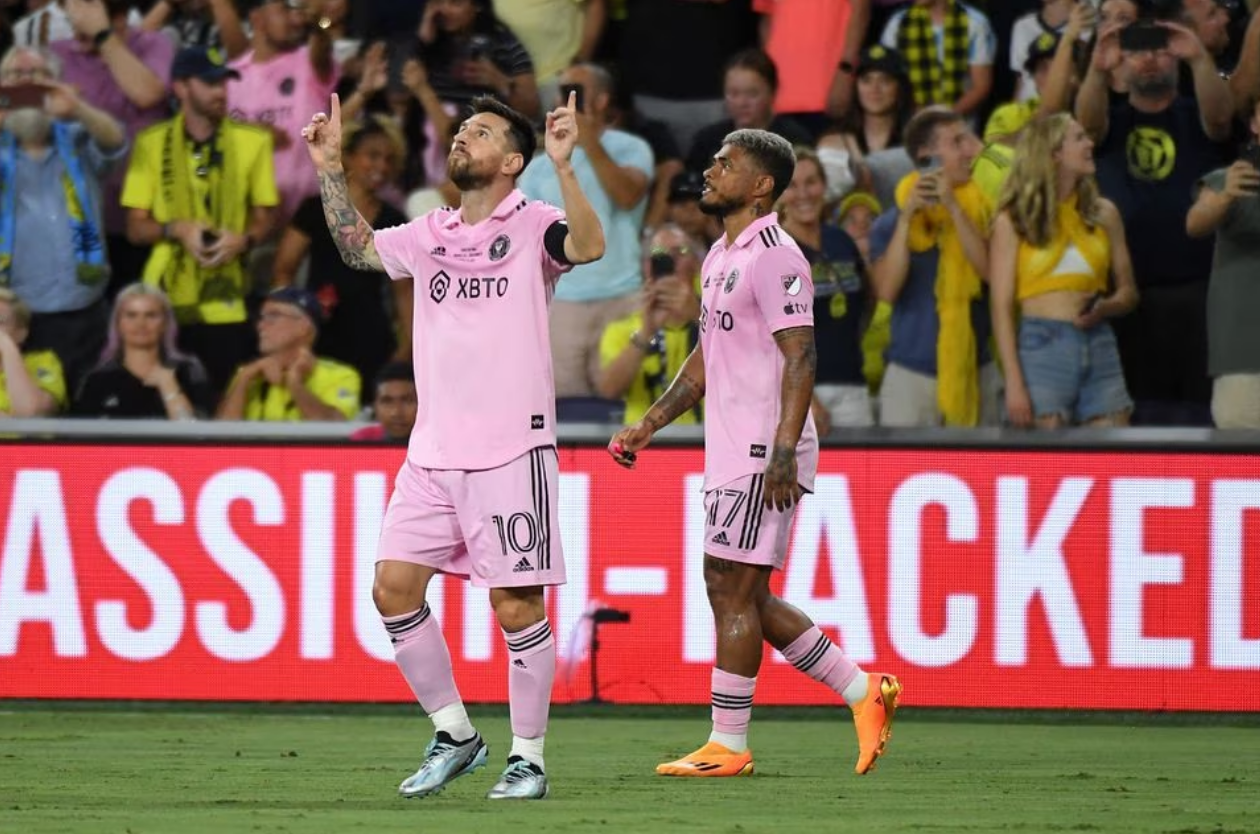The Leagues Cup without Lionel Messi and now possibly without supporters marks a turning point in the landscape of North American soccer.

Lionel Messi, a name synonymous with footballing excellence, has been the cornerstone of numerous successful campaigns across continents. His presence in the Leagues Cup without Lionel Messi and now possibly without supporters is a void that cannot be easily filled. The anticipation and excitement that Messi generates are unparalleled, driving ticket sales, viewership, and engagement across various platforms. His absence is not merely a loss of talent on the field but also a significant blow to the commercial and emotional facets of the tournament.
In Messi’s absence, the Leagues Cup without Lionel Messi and now possibly without supporters faces an arduous task of maintaining its allure. The competition must now rely on its other stars and emerging talents to captivate the audience. This transition presents both a challenge and an opportunity. For the younger players, this is a chance to step into the limelight, to prove their mettle on a grand stage. For the tournament organizers, it is a call to innovate and find new ways to engage with the audience.
However, the situation is further complicated by the potential lack of supporters. The very essence of football is intertwined with its fans. The roar of the crowd, the chants, the sea of colors in the stands – these elements create an electrifying atmosphere that fuels the players’ performances. The Leagues Cup without Lionel Messi and now possibly without supporters strips away this vital energy, leaving behind a stark and sterile environment.
The absence of supporters poses logistical and financial challenges. Gate receipts are a substantial revenue stream for the tournament, and without fans in attendance, this income evaporates. Moreover, the local economies that thrive on match-day activities – from vendors to transport services – face a significant downturn. The ripple effect of an empty stadium extends far beyond the confines of the pitch.
From a broadcast perspective, the Leagues Cup without Lionel Messi and now possibly without supporters presents a unique challenge. Television networks rely heavily on the atmosphere created by fans to enhance the viewing experience. The sight of empty seats and the absence of crowd noise could lead to a disengaged audience, impacting viewership ratings and advertising revenue. Broadcasters may need to employ innovative techniques such as augmented reality and enhanced audio to recreate the sense of excitement.
The psychological impact on players is another crucial aspect. Athletes draw motivation and energy from their supporters. The applause, the cheers, the shared moments of triumph – these are integral to the sporting experience. Playing in an empty stadium can lead to a lack of motivation and decreased performance levels. The Leagues Cup without Lionel Messi and now possibly without supporters necessitates a shift in how players prepare mentally and emotionally for their games.
The tournament’s marketing strategy must also evolve. Traditional campaigns centered around star players and packed stadiums will need to be reimagined. The focus may shift to digital engagement, leveraging social media platforms to create a virtual community of fans. Interactive content, behind-the-scenes access, and exclusive interviews could help bridge the gap between the players and their supporters in the Leagues Cup without Lionel Messi and now possibly without supporters.
Moreover, the Leagues Cup without Lionel Messi and now possibly without supporters could prompt a reevaluation of fan engagement strategies. Loyalty programs, virtual fan zones, and personalized experiences could become the new norm. These initiatives not only keep fans connected but also provide valuable data on preferences and behaviors, enabling more targeted marketing efforts in the future.
Despite these challenges, the Leagues Cup without Lionel Messi and now possibly without supporters also offers a rare opportunity for introspection and growth. It is a moment for the tournament to reassess its values, its objectives, and its relationship with the fans. This period of uncertainty can serve as a catalyst for innovation, pushing the boundaries of how football is experienced and enjoyed.
In the broader context, the Leagues Cup without Lionel Messi and now possibly without supporters is a microcosm of the challenges faced by sports events worldwide. The pandemic has disrupted traditional models, forcing organizers to adapt and evolve. The lessons learned during this period will likely shape the future of sports, leading to more resilient and versatile frameworks.
In conclusion, the Leagues Cup without Lionel Messi and now possibly without supporters is a multifaceted challenge that requires a holistic approach. It is a test of adaptability, creativity, and resilience. While the absence of a football legend and the potential lack of fans cast a shadow over the tournament, it is also an opportunity to explore new horizons. The journey ahead may be uncertain, but with the right strategies and a steadfast commitment to innovation, the Leagues Cup can navigate these turbulent waters and emerge stronger.


